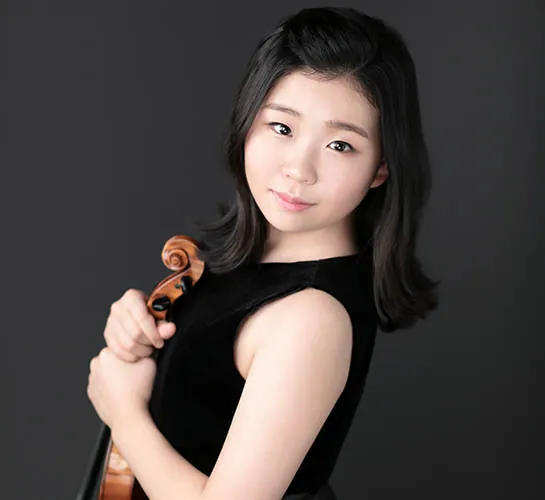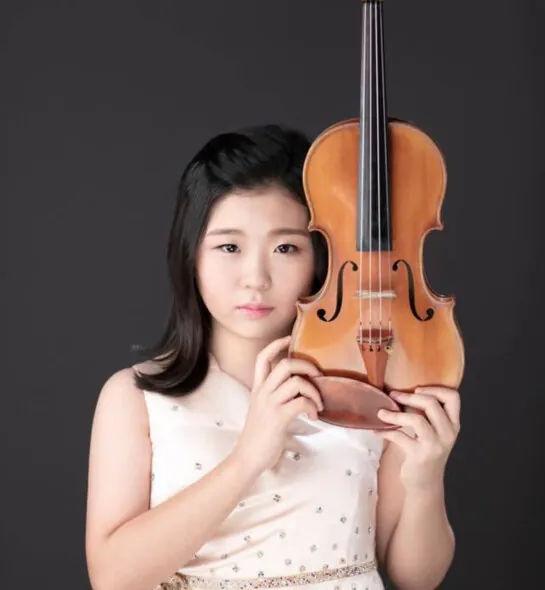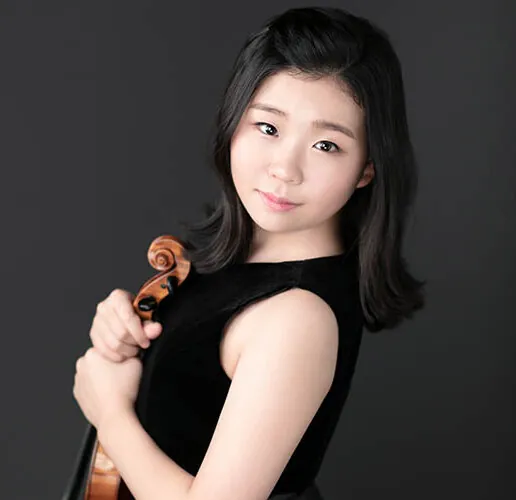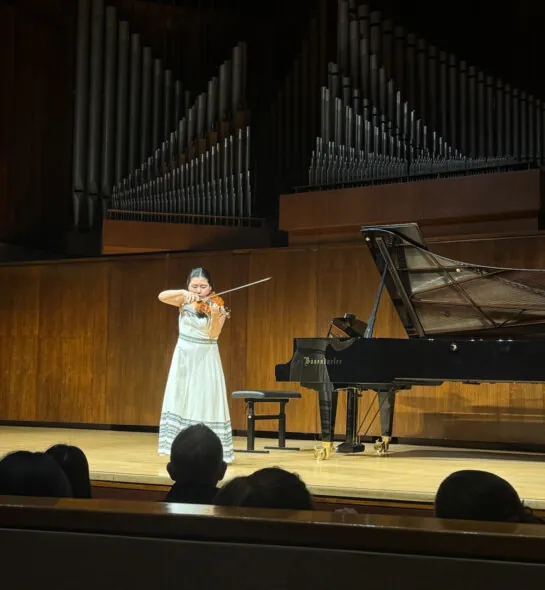Deeper Dive
As a classically trained violinist, I grew up immersed in the works of Bach and Beethoven, as generations of musicians have before me. Yet over time, I became aware of a quiet but persistent resistance within myself, my peers, and the institutions around me to embrace contemporary repertoire. Modern works were often seen as too experimental or emotionally opaque, standing in contrast to the perceived clarity and perfection of the canon.
That perception began to shift when I encountered Jessica Krash’s Imagined Wisdom of Bella Pavis—a piece rooted in personal memory and quiet reflection. As I played it, I felt an unexpected sense of connection, as if the music was reaching across time and space to speak to something unspoken in my own life. In that moment, I realized that contemporary music, rather than being abstract or alienating, could be deeply human and profoundly emotional.
This project emerged from that realization. At its core, it is an exploration of how and why we distance ourselves from the new, and what it might mean to reimagine classical music not as a fixed tradition but as a living, evolving art form. By questioning inherited assumptions and opening space for today’s voices, I hope to contribute to a vision of classical music that is more inclusive, more responsive, and more deeply connected to the world we live in.
I view my work as a platform for advancing scholarly inquiry into access, inclusion, and innovation within classical music. By critically examining the structural and pedagogical biases that distance performers from contemporary composers, my project seeks to reframe classical music as a dynamic and evolving art form—one that responds to and reflects the cultural, emotional, and societal conditions of its time.
Beyond academia, I imagine this work making a tangible difference in the life of a young musician—someone who, as I once did, might feel disconnected or constrained by the rigid expectations of traditional classical training. Encountering new music could be a turning point for them: a chance to find creative freedom, personal resonance, and a sense of representation. Contemporary works often speak directly to the complexities of modern identity and lived experience, offering performers the opportunity to engage with music that feels relevant and real.
As I continue this research, I aim to expand its reach through interdisciplinary dialogue, including curated panel discussions, interactive workshops, and policy-based advocacy for greater support of contemporary music initiatives. I am especially interested in how public institutions—such as conservatories, universities, and professional ensembles—can redesign curricula and programming to better integrate living composers and modern repertoire. This work is not only a contribution to music but also a call to reimagine how the arts evolve and connect more deeply with the society they serve.



